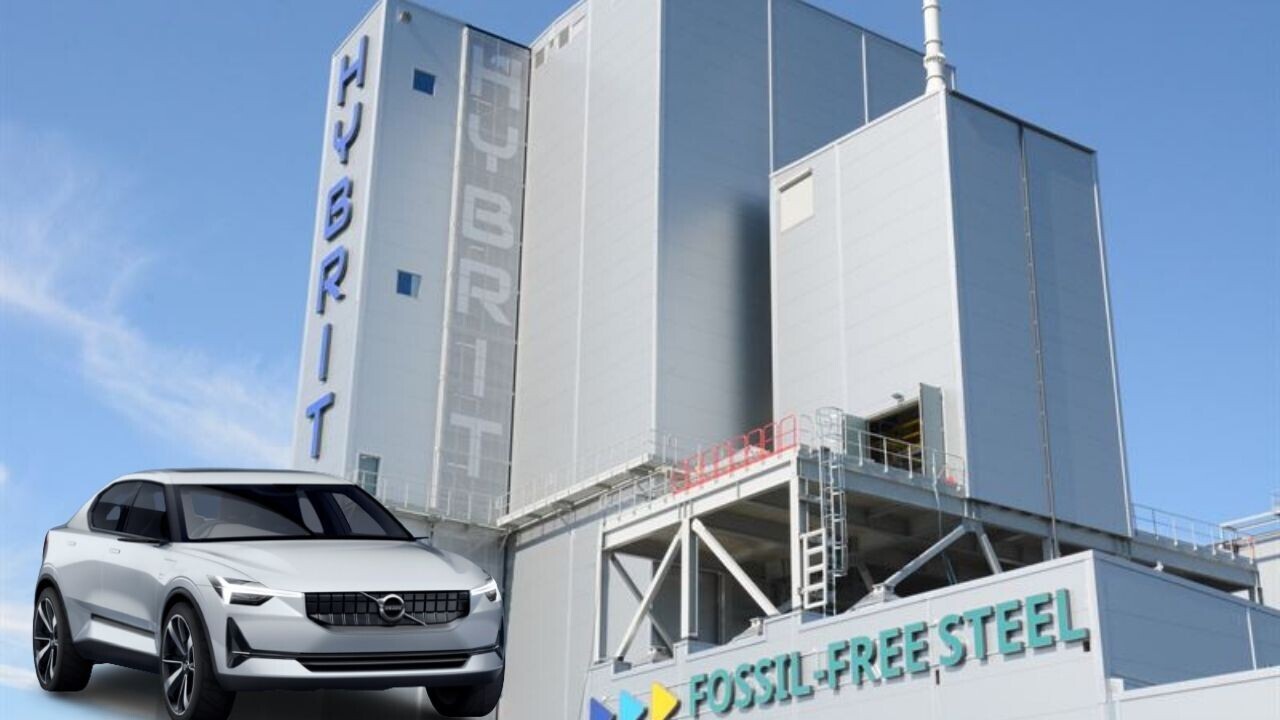
Volvo has joined forces with Swedish steel manufacturer SSAB to explore the development of fossil fuel-free steel for its cars.
This makes Volvo the first automaker to embark on the search of a green alternative for steel production, which is otherwise responsible for about 7% of global direct carbon emissions.
Specifically, steelmaking has a big carbon footprint, generating last year over 3 billion tons of CO2. That’s because the furnaces that melt iron ore to make steel consume vast amounts of coal, which is a major energy source, but a fossil fuel nonetheless.
For this reason, Volvo will collaborate with SSAB’s experimental HYBRIT plant in Sweden, which claims to be the first in the world to use hydrogen instead of coal as the furnace’s fuel source. That’s a promising project, given that hydrogen will be produced by zero-carbon electricity from wind farms and hydro dams.
Volvo will purchase carbon-free steel made at the HYBRIT factory, and is even planning on manufacturing the first concept vehicles and machines with steel made by SSAB already in 2021.
“As we continuously reduce our total carbon footprint, we know that steel is a major area for further progress,” explained Håkan Samuelsson, chief executive at Volvo Cars. “The collaboration with SSAB on fossil-free steel development could give significant emission reductions in our supply chain.”
Nevertheless, the project’s still in its infancy. SSAB aims to start commercial sales in 2026, and Volvo will limit itself to a smaller-scale serial production during 2021, before attempting mass production later on.
Let’s hope that Volvo’s involvement will build momentum around this dawning green hydrogen tech, enough to push the industry to consider more climate-friendly steelmaking alternatives.
Do EVs excite your electrons? Do ebikes get your wheels spinning? Do self-driving cars get you all charged up?
Then you need the weekly SHIFT newsletter in your life. Click here to sign up
Get the TNW newsletter
Get the most important tech news in your inbox each week.





